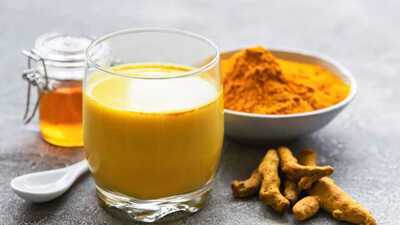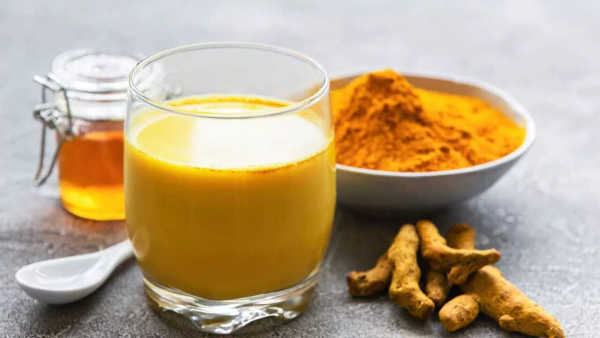
Turmeric has earned global recognition as a “superfood” thanks to its bioactive compound curcumin, which has antioxidant, anti-inflammatory, and antimicrobial properties. For centuries, it has been a cornerstone of Ayurvedic remedies, used for healing wounds, boosting immunity, supporting digestion, and fighting inflammation.
Today, turmeric is consumed in many forms, but two of the simplest and most popular are turmeric water and turmeric milk . Both are prepared with everyday ingredients, yet they deliver different results based on how the body absorbs curcumin. To understand which is better for your health, it’s important to look at their benefits, limitations, and best uses.
Understanding the health effects of turmeric water and milk through science
A study published in 2022 by Raghavendhar R. Kotha et al. examined the extractability of curcuminoids from turmeric using different liquids, including water (cold and warm) and various milks (dairy and plant-based).
The researchers found that warm dairy milk extracts significantly more curcuminoids than water. Ambient water extracted only about 0.55 mg/g, whereas warm water increased this to approximately 2.42 mg/g. In contrast, dairy milks at room temperature extracted 6.76–9.75 mg/g, and when warmed, extraction rose further to 11.7–14.9 mg/g. Plant-based milks, such as almond, coconut, or macadamia, showed much lower extractability (0.01–0.37 mg/g), meaning they pull far fewer curcuminoids from turmeric.
Implications:
- For stronger therapeutic effects like reducing inflammation, boosting immunity, or easing joint pain, turmeric milk (especially warm dairy milk) is most effective.
- For lighter wellness purposes such as detox, gentle metabolism support, or weight maintenance, turmeric water can still be beneficial, particularly if warm and combined with black pepper, though it delivers fewer active compounds.
Turmeric water and Turmeric milk: Understanding their benefits and usage
Turmeric water

Turmeric water, often called haldi pani, is prepared by mixing turmeric into warm water, sometimes with lemon, honey, or black pepper.
One of its main appeals is its simplicity. Taken on an empty stomach in the morning, it hydrates the body and gives a gentle boost to metabolism. Its antioxidant compounds support liver function and help in flushing out toxins, making it a natural detox drink.
Turmeric water is also linked to digestive health. By stimulating bile production, it can help ease bloating and improve the breakdown of fats. Its low-calorie nature makes it popular among those aiming for weight management.
However, the absence of fat means that curcumin absorption is relatively low, unless paired with black pepper or consumed with food. For this reason, turmeric water is more effective as a light wellness tonic than as a strong anti-inflammatory remedy.
Turmeric milk

Turmeric milk, or haldi doodh, has been a staple in Indian households for generations. It is prepared by warming milk with turmeric and sometimes adding spices like cinnamon, ginger, or black pepper.
Unlike water, milk naturally contains fat, which helps curcumin dissolve and enter the bloodstream more efficiently. This makes turmeric milk far more effective in tackling inflammation, easing joint pain, and boosting immunity.
Turmeric milk is also widely used during colds and flu. The warmth of the drink soothes sore throats, while turmeric’s antimicrobial properties strengthen the body’s defenses. In addition, milk provides protein, calcium, and sometimes vitamin D, making the drink not just medicinal but also nourishing.
Another important benefit of turmeric milk is its role in promoting sleep. Warm milk has calming effects on its own, and when combined with turmeric, it becomes a natural remedy for restlessness and insomnia. This is why many prefer turmeric milk as a night-time drink.
The downside is that turmeric milk is higher in calories and may not suit those who are lactose intolerant. Plant-based milks can be used, though their fat content varies, which may affect how much curcumin the body can absorb.
Turmeric water vs Turmeric milk: Which one to choose
The decision between turmeric water and turmeric milk depends on your health goals and lifestyle. If you are looking for a light, detoxifying start to your day, turmeric water is the better option. It supports digestion, metabolism, and hydration without adding calories.
If your focus is on reducing inflammation, strengthening immunity, or improving sleep, turmeric milk is more effective. The presence of fat in milk allows curcumin to be absorbed much more efficiently, delivering stronger health benefits.
Many people choose not to limit themselves to just one. Turmeric water in the morning and turmeric milk at night is a balanced way to enjoy the best of both worlds.
Turmeric water and Turmeric milk: When to choose what
Both turmeric water and turmeric milk are rooted in traditional wisdom and supported by modern research. They are not competing remedies but complementary ones, each suited to different times of the day and different health priorities. Turmeric water cleanses and refreshes, while turmeric milk heals and restores.
Choosing between them depends less on which is universally better and more on what your body needs. By understanding their differences, you can incorporate them mindfully into your routine and unlock the full potential of turmeric.
Also Read |
Fatty liver diet: 10 best foods to eat, foods to avoid, and lifestyle tips for liver health
 Turmeric has earned global recognition as a “superfood” thanks to its bioactive compound curcumin, which has antioxidant, anti-inflammatory, and antimicrobial properties. For centuries, it has been a cornerstone of Ayurvedic remedies, used for healing wounds, boosting immunity, supporting digestion, and fighting inflammation.
Turmeric has earned global recognition as a “superfood” thanks to its bioactive compound curcumin, which has antioxidant, anti-inflammatory, and antimicrobial properties. For centuries, it has been a cornerstone of Ayurvedic remedies, used for healing wounds, boosting immunity, supporting digestion, and fighting inflammation.

